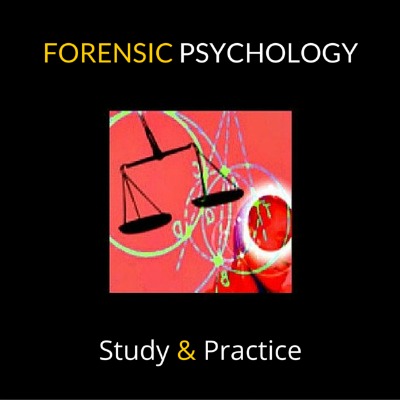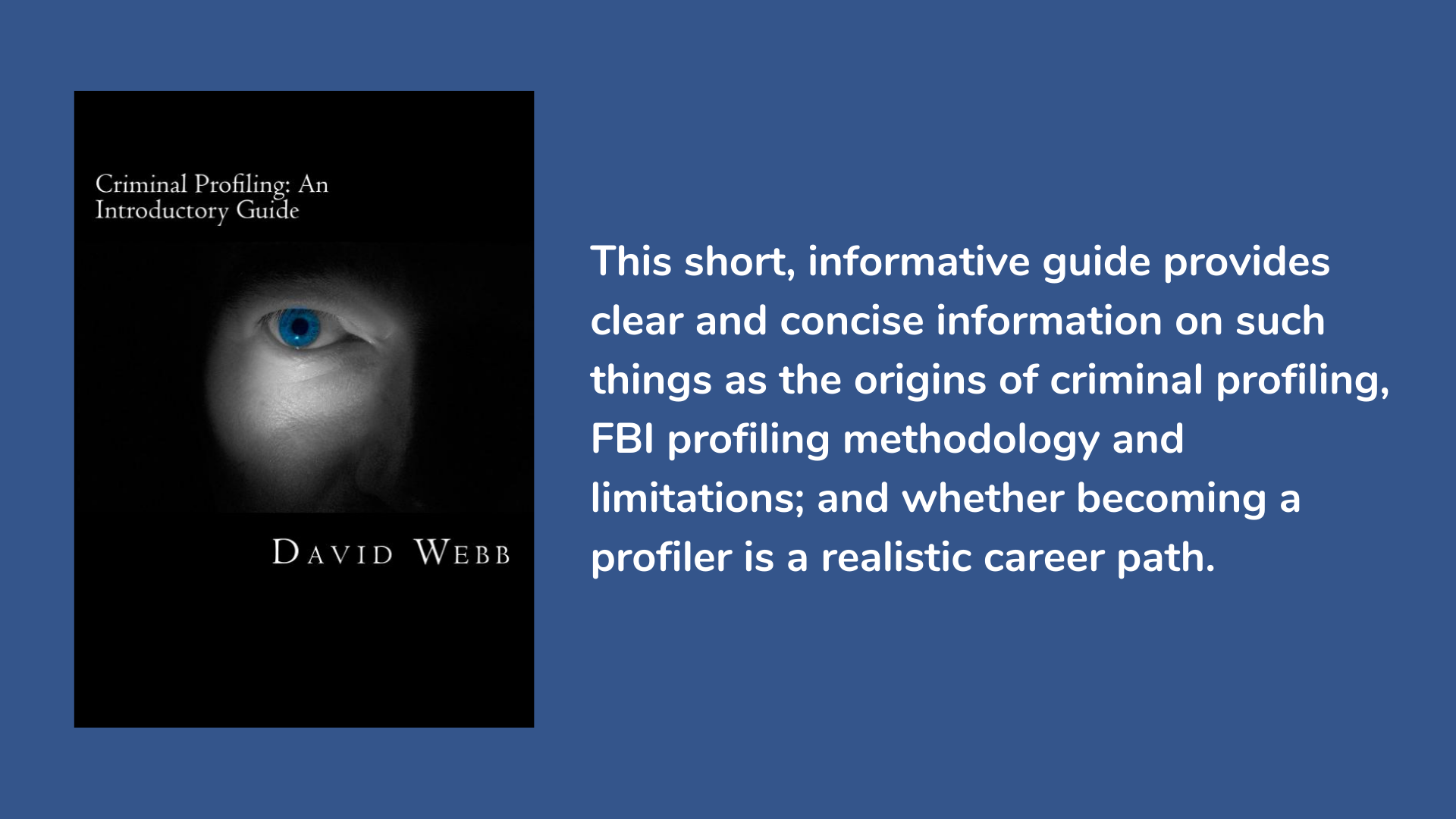The Study and Practice of Forensic Psychology
A Comprehensive Review by Christopher Cronin, PhD.
Students frequently asked what degree is best for employment in the field of forensic psychology. The answer to this question depends on how one defines forensic psychology along with an individual’s career goals.
Although the type of degree is important with regards to obtaining a licensed to practice psychology, it is equally important to develop the specific skills needed to function as a forensic psychologist.
Defining Forensic Psychology
Some authors use a very broad definition for forensic psychology, stating that it encompasses anything that has to do with psychology and the legal system. Others define forensic psychology within a more applied context. In 2001, the American Psychological Association formally recognized forensic psychology as a specialty within the profession. In the "Petition for the Recognition of a Specialty in Professional Psychology," forensic psychology is defined as the:
"professional practice by psychologists within the areas of clinical psychology, counseling psychology, neuropsychology, and school psychology, when they are engaged regularly as experts and represent themselves as such, in an activity primarily intended to provide professional psychological expertise to the judicial system" (Heilbrun, 2000, p.6).
This narrow definition adopted by the American Psychological Association views forensic psychology as a specialty within the applied areas of psychology and is the definition used in this article.
A student planning to practice forensic psychology will need to earn a degree that leads to licensure. Generally speaking, a doctorate in either clinical or counseling psychology is required to be a licensed psychologist. The majority of psychologists who provide forensic services have their degree in clinical psychology. Approximately 85% of the membership of the American Psychology-Law society identifies themselves as clinicians.
The specialty designation by the APA indicates that the field has developed a substantial body of professional literature and specialized knowledge that distinguishes forensic psychology from other specialties. The Commission for the Recognition of Specialties and Proficiencies in Professional Psychology defines the specialized knowledge in forensic psychology as follows:
Specialized knowledge in forensic psychology is important in three areas. These are as follows: 1. clinical (e.g., diagnosis, treatment, psychological testing, prediction and intervention measurement, epidemiology of mental disorders, ethics), 2. forensic (e.g., response style, forensic ethics, tools and techniques for assessing symptoms and capacities relevant to legal questions) and 3. legal (e.g., knowledge of law and the legal system, knowledge of where and how to obtain relevant legal information).
This set of skills is consistent with the APA’s definition of forensic psychology and places the emphasis on the development of solid clinical skills. Although it is necessary to have specialized training in areas of law and forensic psychology, these competencies have traditionally come after the development of clinical expertise. Therefore, anyone wishing to pursue a career in forensic psychology should first develop strong clinical skills in assessment, understanding psychopathology, report writing, diagnostic interviewing, and case presentation.
Doctoral Degrees
To practice psychology in the United States or Canada, an individual needs to be licensed by their state or provincial board. The American Psychological Association recommends that individuals be eligible to sit for licensure upon completion of the following education and training:
1. A doctoral degree in psychology from an APA-accredited or Canadian Psychological Association (CPA) - accredited university.
2. The equivalent of two years of organized, sequential, supervised professional experience, one year of which is an APA - or CPA-accredited predoctoral internship.
Thus, in order to practice professional psychology, the student needs to obtain a Ph.D. or Psy.D. (Doctor of Psychology) degree. Although the above recommendations are not binding in all states, many states have adopted the APA recommendations and require licensure candidates to have their degrees awarded from an APA-accredited program. The APA does not accredit all institutions of higher education that offer the doctoral degree in clinical or counseling psychology.
A student receiving the doctorate from a program not accredited by the APA may find that they cannot be licensed in various states or provinces. Accreditation by the APA is different than accreditation by the regional education-accrediting agency. The APA publishes a list of APA-accredited institutions on the APA web site. The Association of State and Provincial Psychology Boards (ASPPB) publishes information on each state’s licensing requirements.
Students also wonder whether they should pursue a degree in clinical or counseling psychology. The difference between degrees in clinical psychology versus counseling psychology was traditionally one of focus. The distinction between clinical and counseling psychology has gradually become blurred over the past two decades. Clinical psychologists are trained to diagnose and treat individuals with serious mental illness such as major depression and anxiety disorders.
Counseling psychologists receive much of the same training as clinical psychologists. Counseling psychologists are generally train to work with individuals who are struggling with adjustment issues in life, such as moving away from home, transitioning through a divorce, or adjusting to a new location. However, the distinction is not as great as it was in the past and there is now a great deal of overlap in populations served by the two specialties.
Another type of doctoral degree in clinical psychology is the Psy.D., signifying the Doctor of Psychology degree. The original intent of the Psy.D. degree was to distinguish between the scientist, academic psychologist (Ph.D.) and the practitioner, or professional psychologist (Psy.D.). The focus of training for a Psy.D. is on clinical service as opposed to research and teaching. The major differences between the two degrees in clinical psychology are training opportunities and training focus. Students are encouraged to discuss with their advisors the benefits and tradeoffs associated with both degree types before making decisions that will have consequences that carry well into one’s career.
Generally speaking, a Ph.D. degree provides slightly more flexibility with regards to job opportunities. Although a Ph.D. and Psy.D degree in clinical psychology would be interchangeable for clinical positions, some universities may be slightly reluctant to hire a Psy.D. to serve on the faculty. A number of graduate programs have developed course work and supervision opportunities for individuals wishing to pursue specialized work in forensic psychology.
A relatively small number of graduate programs offer formal training in exclusively forensic psychology. Even though these programs exist, some practitioners have questioned the long-term viability and advisability of such specialized degrees. It appears that a specialized degree in forensic psychology may limit an individual’s professional options more so than a general degree in clinical or counseling psychology. Rather than a specialized degree, it may be advisable to obtain a doctoral degree in clinical or counseling psychology with specialized course work, supervised clinical experiences, and continuing education in forensic psychology. Another strategy is to complete a generalist degree in clinical or counseling psychology and pursue a forensic specialization, either through course work, continuing education or a certificate in forensic psychology.
Individuals can also pursue post-doctoral training in forensic psychology. This typically requires a year of specialized training with intensive supervision and additional formal coursework in forensic psychology. Currently, there are only 11 identified postdoctoral programs in forensic psychology and these programs accept only one or two applicants a year. With so few postdoctoral training opportunities, it seems unlikely that this will become the requisite for practice in the specialty.
Practicing Forensic Psychology at the Master’s Level
Although many states allow licensure at the master’s level, these mental health professionals may not use the title of psychologist. This title is regulated by all the states and can only be used by individuals with a doctorate. The one exception is a school psychologist, who is usually credentialed at the master’s level.
A master’s degree in psychology requires one to two years of school after the bachelor’s degree. Although an individual with a master’s degree cannot present himself or herself as a psychologist, they may be able to practice in various states under the title of licensed professional counselor, licensed mental health counselor, or other such titles. Thus, a master’s degree in counseling or clinical psychology may allow one to practice independently, depending on the jurisdiction. The master’s degree could then open the door to working in the specialty of forensic psychology.
Working at the master’s level in forensic psychology usually entails providing mental health services within correctional or police settings. Master’s level counselors may lead psychoeducational groups in correctional facilities or for individuals serving probation in the community. The focus of treatment can involve anger management, domestic violence, parenting skills, substance abuse and relapse prevention, sex offender treatment, or the development of problem solving skills, to name just a few.
Depending on the jurisdiction, individuals with a master’s degree may conduct court-ordered psychological and mental health assessments. When deciding to pursue a master’s degree in psychology, it is important to understand the laws of the state in which you plan to practice. It is just as important to keep in mind that state laws can evolve rapidly and it is best to stay abreast of any changes in licensing requirements.
In addition to the necessary educational and internship requirements to practice as a forensic psychologist, other skills can be of particular benefit. Most forensic psychologists are involved in some form of psychological assessment. These assessments may address a wide range of issues before the court such as competency evaluations, criminal responsibility evaluations (insanity plea), child custody evaluations, psychological trauma evaluations, sex offender risk, dangerousness, sexual abuse, accuracy of children’s testimony, disability evaluations, civil commitment, psychological autopsy, etc.
It is important for the forensic psychologist to have excellent assessment skills. This includes strong statistical skills to understand the psychometric properties of the instruments being used, training and supervision in using psychological tests, and strong writing skills to produce understandable psychological reports for the court. Additionally, psychologists who testify in court should develop their oral presentation skills along with having a well-groomed social presence.
Students interested in careers in forensic work can consult the American Psychology – Law Society web site for information on careers, graduate programs, and job listings
Students interested in pursuing a career in forensic psychology are encouraged to become student affiliates of the APA and to join Division 41. The Careers and Training Committee of the American Psychology- Law Society also publishes a booklet titled, Careers in Psychology and the Law: A Guide for Prospective Students. Another book, Your Career in Psychology: Psychology and the Law (Kuther, 2004) also provides career information for students interested in psychology and law.
References
Heilbrun, K.S. (2000, July 20). Petition for the recognition of a specialty in professional psychology. Submitted on behalf of the American Board of Forensic Psychology and the American Psychology-Law Society to the American Psychological Association.
Kuther, T. L. (2004). Your Career in Psychology: Psychology and the Law Canada: Wadsworth.
About The Author
Christopher Cronin received his BS in psychology at the University of Wisconsin, Madison and his MA and PhD in clinical psychology at the University of Delaware. He completed his internship at the University of California, Davis in the Department of Psychiatry at the University Medical Center in Sacramento; and completed a Post-doctoral certificate in Clinical Psychopharmacology at Fairleigh Dickinson University.
Dr. Cronin is a licensed clinical psychologist who has held academic positions in Europe (University of Maryland, Munich Campus), Australia (Flinders University of South Australia) and the United States (Transylvania University and Saint Leo University).
He has practiced forensic psychology since 1991 conducting competency to stand trial evaluations and criminal responsibility evaluations for the Commonwealth of Kentucky.
Dr. Cronin is Professor and Director of Graduate Training at Saint Leo University in Florida and has conducted over 6,000 court-ordered forensic evaluations in the Tampa Bay area. He is also the author of the book Forensic Psychology.
Go From The Study and Practice of Forensic Psychology Back To The Home Page


